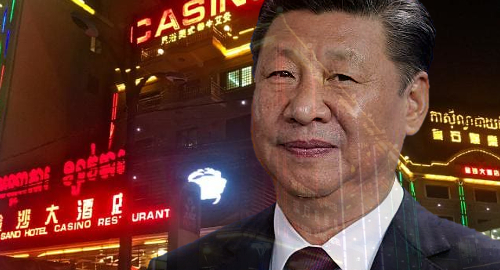 Chinese nationals control over 90% of businesses in Cambodia’s Sihanoukville region, including over three-quarters of its casino operations.
Chinese nationals control over 90% of businesses in Cambodia’s Sihanoukville region, including over three-quarters of its casino operations.
Authorities in Preah Sihanouk province released a report on Monday showing that Chinese nationals owned 150 of Sihanoukville’s 156 hotels and guesthouses, along with 41 of its 46 karaoke clubs and massage parlors. The Phomn Penh Post reporte that an estimated 95% of the region’s 436 restaurants are managed by Chinese nationals, who also have ownership stakes in 48 of Sihanoukville’s 62 operational casinos.
Cambodia’s government revealed last month that 91 of the 163 casino licenses it has issued to date were for operations in Preah Sihanouk province. Many of these licenses were focused on online gambling operations, which traditionally target customers in mainland China.
The massive rise in the number of new casino licenses issued – including 13 in just the first four months of 2019 – has raised government revenue but has also increased tensions between local residents and the hordes of Chinese nationals flooding into Sihanoukville.
Sihanoukville’s Chinese bubble may have finally burst last month following the physical collapse of an in-development resort that resulted in dozens of deaths. A Chinese-run casino was also ordered to close this spring after its operators repeatedly thumbed their noses at local authorities while dumping raw sewage into the sea near a popular beach.
The ensuing negative media coverage prompted Cambodia’s prime minister Hun Sen to order a review of all foreign-backed construction projects in Sihanoukville. That in turn prompted Andrew Klebanow, a senior partner at the Global Market Advisors consultancy, to tell GGRAsia that existing casino projects may face delays due to increased regulatory scrutiny.
However, Klebanow suggested that it was unlikely that the tragedy would “slow down the issuance” of new casino licenses. Klebanow’s view is that “market forces” would ultimately dictate whether casino operators continued to view Sihanoukville as the hot chick at the Asia-Pacific casino bar.





